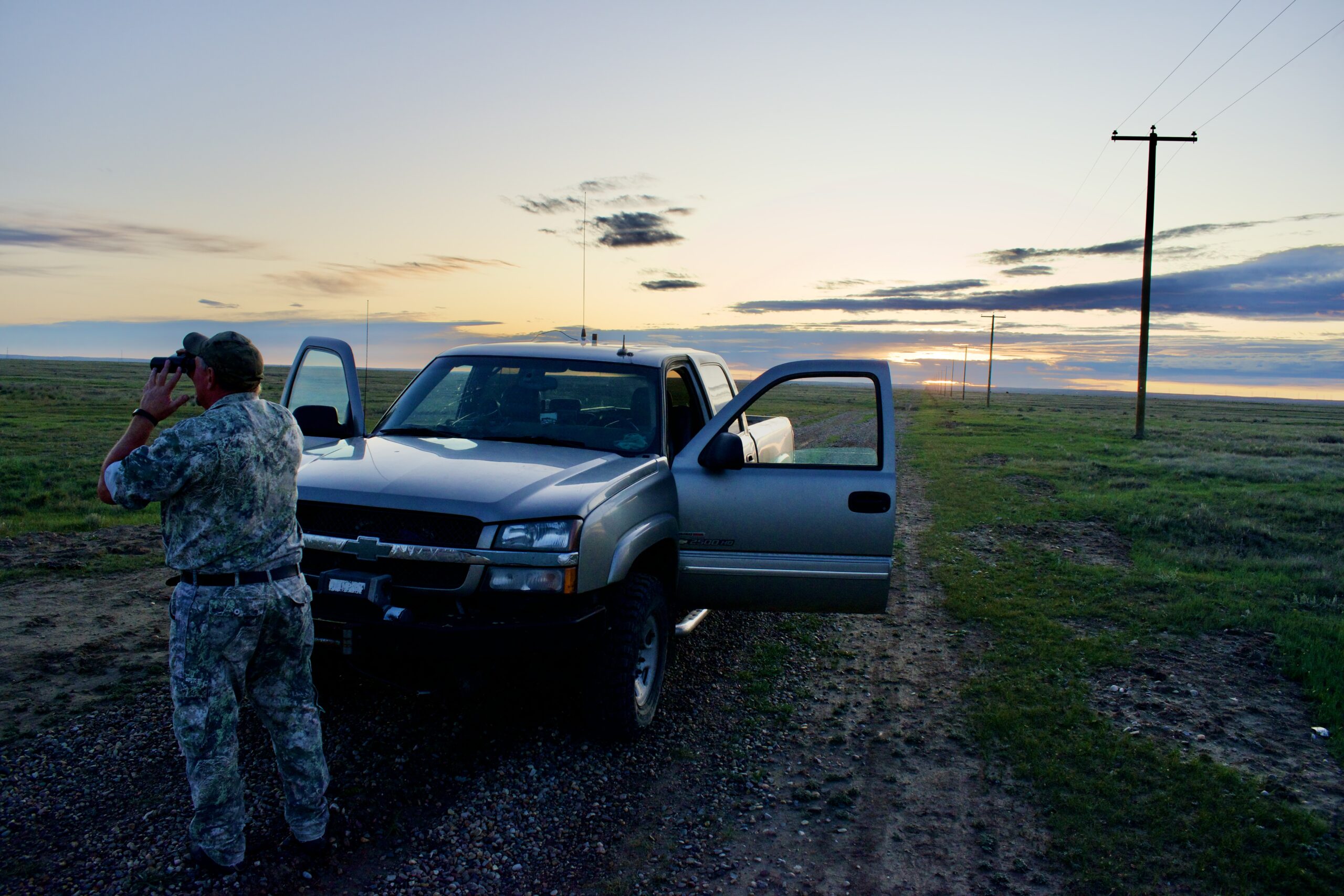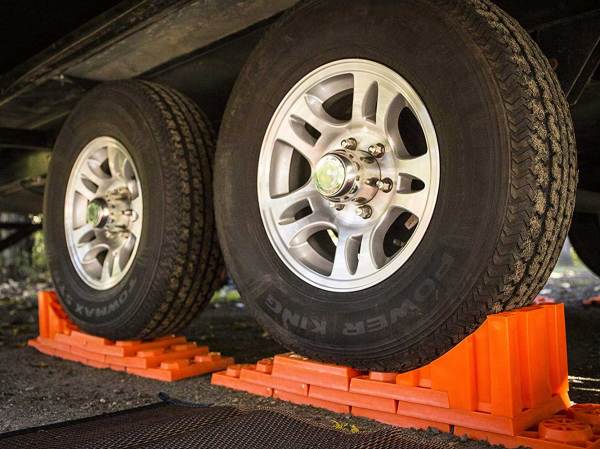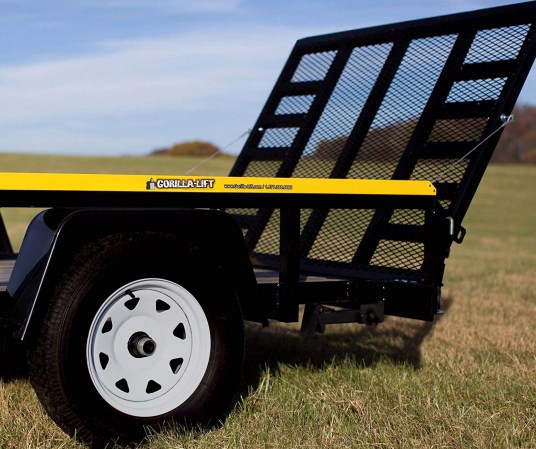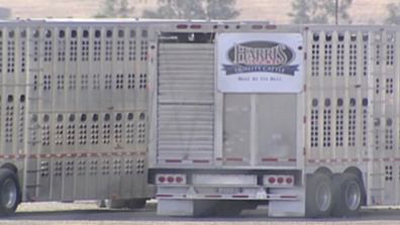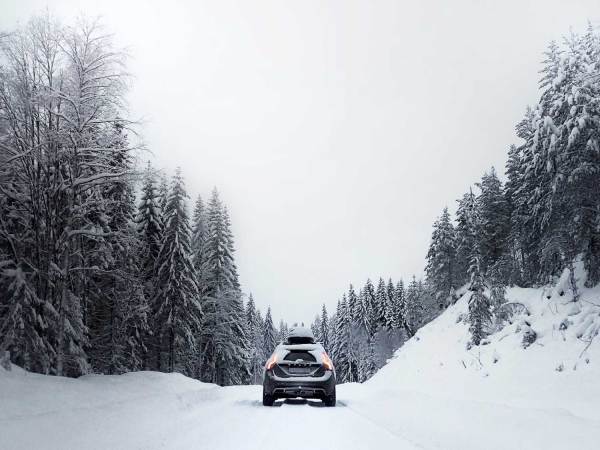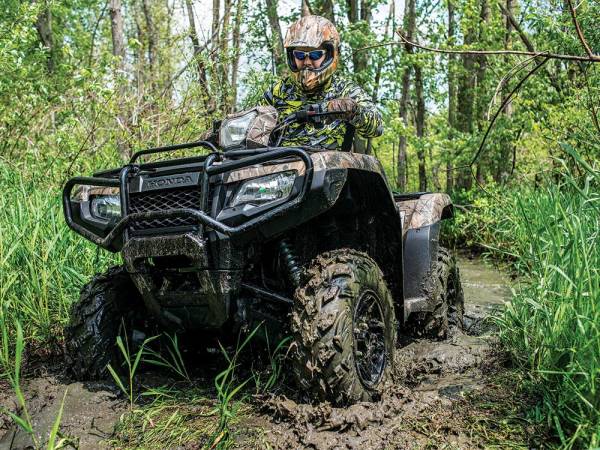We may earn revenue from the products available on this page and participate in affiliate programs. Learn More ›
Because of the expense of a new truck, many hunters choose to buy used. But navigating the used truck market often feels like playing a game of roulette. It doesn’t have to be. The real reason used truck purchases go wrong is because the buyer didn’t do their due diligence. If you know little to nothing about how to identify a quality used vehicle that’s going to cause you headaches.
Shopping for a pre-owned truck to serve as your next hunting rig doesn’t have to be painful. Successful hunts depend on careful scouting and prep work, and so to does buying a used truck. With some time, patience, and knowledge, you can find a quality used truck you can rely on for years.
Do Your Homework

Before dropping $10,000 to $20,000 on a used vehicle, identify trucks within your budget (include potential maintenance/repair costs), then talk to your mechanic to get a sense for which trucks are likely to hold up well over time. Also, check out online resources that rely on professional mechanic feedback, like Dashboard Light, a site dedicated to used vehicle powertrain reliability. Research common issues and associated repair costs but take subjective consumer evaluations with a grain of salt, such as those provided by CarComplaints.com. If your budget is tight, focus on finding a truck with a reputation for strong powertrain reliability and minimal electrical issues. More modern trucks rely on electronics to operate. If there is something haywire with a vehicle’s internal dashboard, you can end up with a truck that won’t start.
Also, think about who you are buying a truck from. Personally, I am leery of buying used from construction workers or even other hunters, because they are more likely to beat the heck out of their trucks. And if your seller used their truck to tow heavy loads long distances—this applies particularly to anyone searching the used diesel market—take a hard pass. It’s more likely that truck has strained essential systems, such as the powertrain and brakes. That said, every driver is unique. Don’t discount anyone solely based on their profession or hobbies, but due factor both in before you buy.
Check the Truck’s History
Once you’ve found a specific truck that piques your interest, ask the seller for three things: a thorough rundown of the truck’s “as-is” condition, its title status, and a vehicle history report (including any maintenance and repair records). If you are looking at a vehicle listing online or in the classifieds, also request interior and exterior pictures as well as the truck’s VIN number to search for any open recalls.
Speak to the seller over the phone or in person if possible. Ask about the truck’s condition, history, and title status. Honest sellers try to include candid information about their vehicles, but rarely does anyone remember everything when creating an ad.
Finally, request a Carfax report and request to see any maintenance and repair records the seller may have. Reputable dealers will have access to free vehicle history reports, and private individuals can get a single Carfax report for $40. These reports are tied directly to the vehicle’s VIN (kind of like an automotive Social Security Number) and record all major events in the vehicle’s life, such as ownership history, lines, accidents, and title changes. Vehicle history reports and auto care records are helpful for learning a vehicle’s true history regardless of what the seller may or may not tell you (intentionally or otherwise). If you must spring for a report yourself, stick with Carfax. They are the industry leader and sometimes catch things that other reporting services miss.
Used Truck Dealbreakers
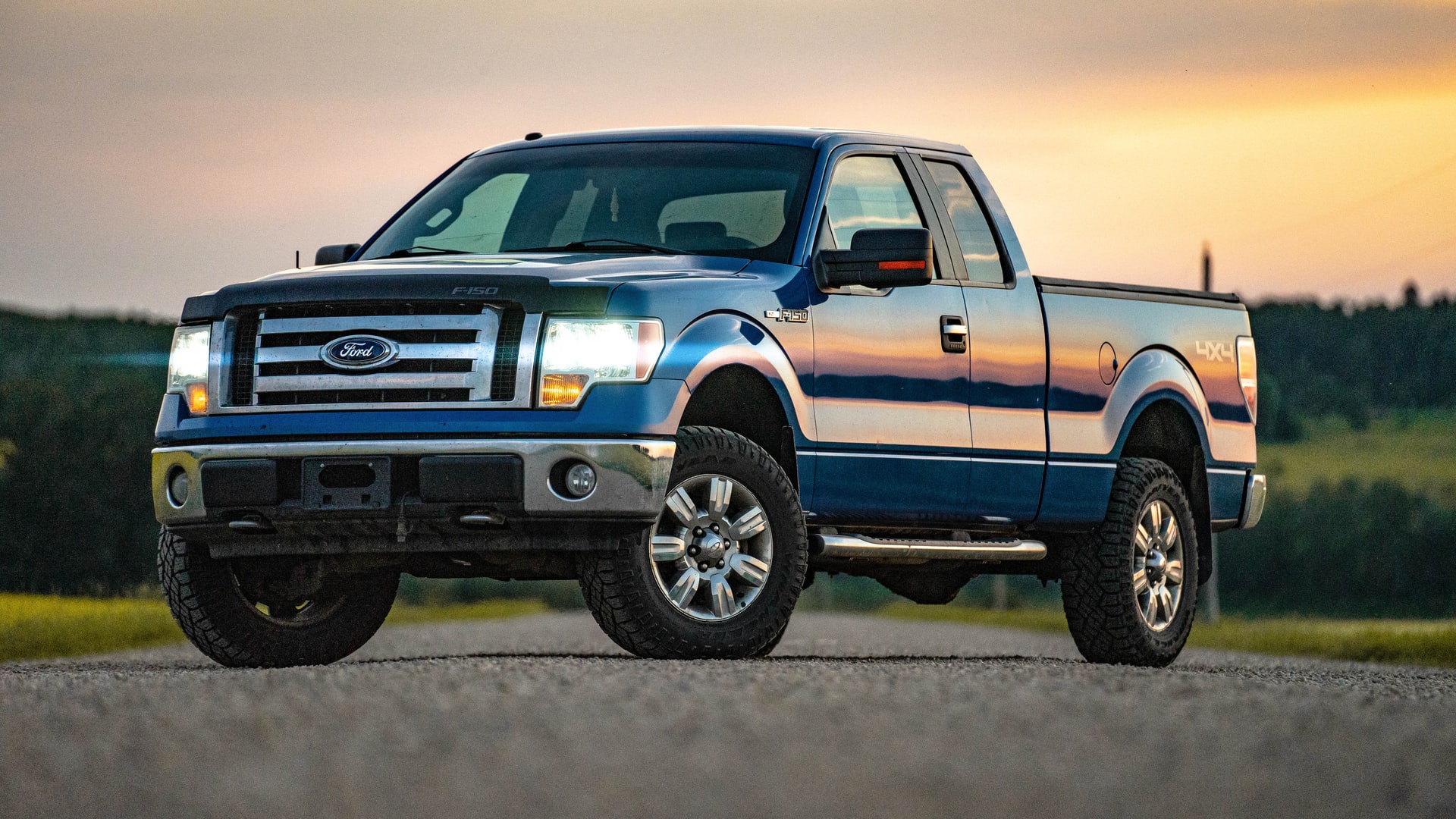
If you run into any of these issues buying a used truck, walk away.
- Dishonest seller: Shady sellers will be elusive and unwilling to answer your questions directly. Some might even be “curbstoners,” sellers who fraudulently pose as the vehicle’s owner to avoid licensing and tax requirements.
- Excessively low mileage for the price: If it looks too good to be true, it is.
- Excessively high mileage: This usually indicates hard use. That said, highway miles cause less wear and tear than city miles, so a highway-only truck may not be a bad purchase.
- Extended parking: If a vehicle has been parked for months or years at a time without being driven, the chances are high it’s a money pit.
- Failed emissions test: Failing an emissions test may sound benign, but in some cases, this is an absolute deal breaker. If a truck failed an emissions test for the first time, this could indicate a blown head gasket or other major issue, and in many newer vehicles, replacing the catalytic convertor can cost as much as swapping an engine or transmission. Consult your mechanic before proceeding.
- Fire damage: Fires spawn unending electrical demons. Walk away, even if the fire was small.
- Liens: A lien often indicates that a vehicle’s critical maintenance has been neglected.
- Mileage discrepancy: While it is illegal to change a vehicle’s odometer, some people still do it. Also, watch out for sellers that list only the mileage on a new engine or transmission instead of the truck itself.
- Title: If it’s not clean, it’s a legal nightmare. When you buy from an individual, make sure they can produce a title.
- Requires powertrain work: If a truck needs an engine or transmission replacement, look elsewhere. According to Josh Hollinrake, a dual ASE-certified mechanic with a decade of experience, the average engine replacement today using an uncomplicated, remanufactured engine costs around $8,000 to $10,000.
- Spotty maintenance records: While not an absolute deal breaker, spotty maintenance records could indicate neglect. Trust your mechanic’s judgment when you make it to the inspection phase.
- Title change(s): Title changes are a red flag, usually indicating major damage. Car owners may physically alter their title, misrepresent the vehicle’s history when applying for a new title, or “wash” the title. Akin to money laundering, title washing entails registering a vehicle bearing a flood title or other unusual, non-clean title brand to a state that does not recognize that brand, netting the questionable car a clean title.
Inspect the Truck
Find a truck you like, then schedule a time to inspect and test drive the vehicle. When you arrive, do a walkaround, taking into consideration its age, mileage, and past life. A 75,000-mile truck that has been put in the garage every night will need to meet higher standards than a 150,000-mile truck that’s been parked outside since day 1.
When inspecting any vehicle, use a good flashlight and trust your gut. Slowly circle the vehicle and note any dings, dents, and drips. Inspect the tire tread. Take in as much as you can, checking under the hood and the truck itself. You want to identify anything that seems unusual for the type of truck in front of you. If something seems odd, politely inquire about it.
Finish with a good look at the interior, noting any strange sights, smells, sounds, or other oddities. See if any buttons or switches are broken, again keeping in mind the truck’s history. If you notice any of these issues during your walk around, it’s time to look elsewhere.
- Engine neglect: Look for rotted, damaged, or excessively worn rubber parts, such as belts and hoses. Decrepit rubber parts that haven’t been replaced despite being easy to reach and replace indicate a neglected vehicle.
- Excessive leaks: A waterfall of fluids usually indicates a prior accident or potentially serious wear to major components.
- Frame repairs: Look for obvious frame or bumper damage. To find the front bumper, look between the chrome or plastic bumper cover and the radiator.
- Greasy/oily exhaust pipe: If a gasoline-powered truck’s exhaust pipe sports a greasy or oily residue, it’s likely burning oil which could mean a very expensive engine repair.
- Heavy modifications: Heavily modified trucks tend to have an uncomfortable ride and a higher likelihood of expensive future repairs. Mods are expensive, and few people have the know-how of funds to complete them properly, making them a potential safety hazard. If you love the truck, talk to your mechanic first to find out what kind of future repair bills you’ll be facing.
- Inconsistent body repairs: Misaligned body panels, inconsistent paint, and “traveling” body damage that suddenly ends usually indicate a past accident. A non-factory paint job often indicates post-accident repairs, but not always.
- Structural rust: Rust is like cancer, so inspect the truck carefully for structural rust, paying careful attention to the frame and other critical components. Surface rust is normal on older trucks, but if you see bubbling or other obvious signs of structural rust, walk away. Not sure if you’re looking at surface or structural rust? Hollinrake says surface rust can be removed with a wire brush or sandpaper without damaging the metal underneath. Anything worse is structural.
- Welded frame: A welded frame almost always indicates serious frame damage or worse. Mike Prouty, an ASE-certified mechanic with over 40 years of experience said he once had a customer who bought a Subaru on eBay. The car turned out to be two different cars welded together. Thankfully, the customer was able to return the vehicle(s).
- Water damage: Look for unusual rust and water marks and pay attention to moldy or musty smells. Water damage often creates costly electrical problems. Be on the lookout for title washed trucks no matter where you live, especially after major floods or hurricanes.
Take a Test Drive

The next step in deciding whether to buy that used truck is to test drive it. You don’t need to be a mechanic or highly knowledgeable about cars to conduct an informative test drive; focus, common sense, and intuition go a long way.
To identify potential deal breakers, make sure to drive the truck with the radio off, roll all the windows down, and pay attention to how the car behaves. Put the truck through the test drive basics, but make sure to engage your physical senses—sight, smell, hearing, and touch, especially. If something feels off, try to isolate what it is, then take note of it. You may not catch every little thing, but that’s okay. A good mechanic will find whatever you miss.
- Engine: Listen for any noise coming from the engine, such as knocks, ticks, or other unusual sounds, especially those that remain once the engine is warm and/or running at driving speeds. These often indicate that the truck needs a new engine. Also, take note of overheating, misfires, and exhaust leaks which might indicate an expensive engine repair.
- Transmission: Pay attention to how the truck shifts gears. If the transmission makes noise or vibrates while in neutral, has jerky, rough, or sluggish gear changes, or slips or grind while shifting, then start looking for another vehicle.
- Poor response: While driving, does the truck respond poorly to your input? Lack of power, loose steering, and long braking distances are all issues to note as well. While not all are necessarily deal breakers, these symptoms should be reported to your mechanic when they conduct the pre-purchase inspection.
Read Next: The Best Used Trucks for Hunters
Get an Inspection from an Expert Mechanic
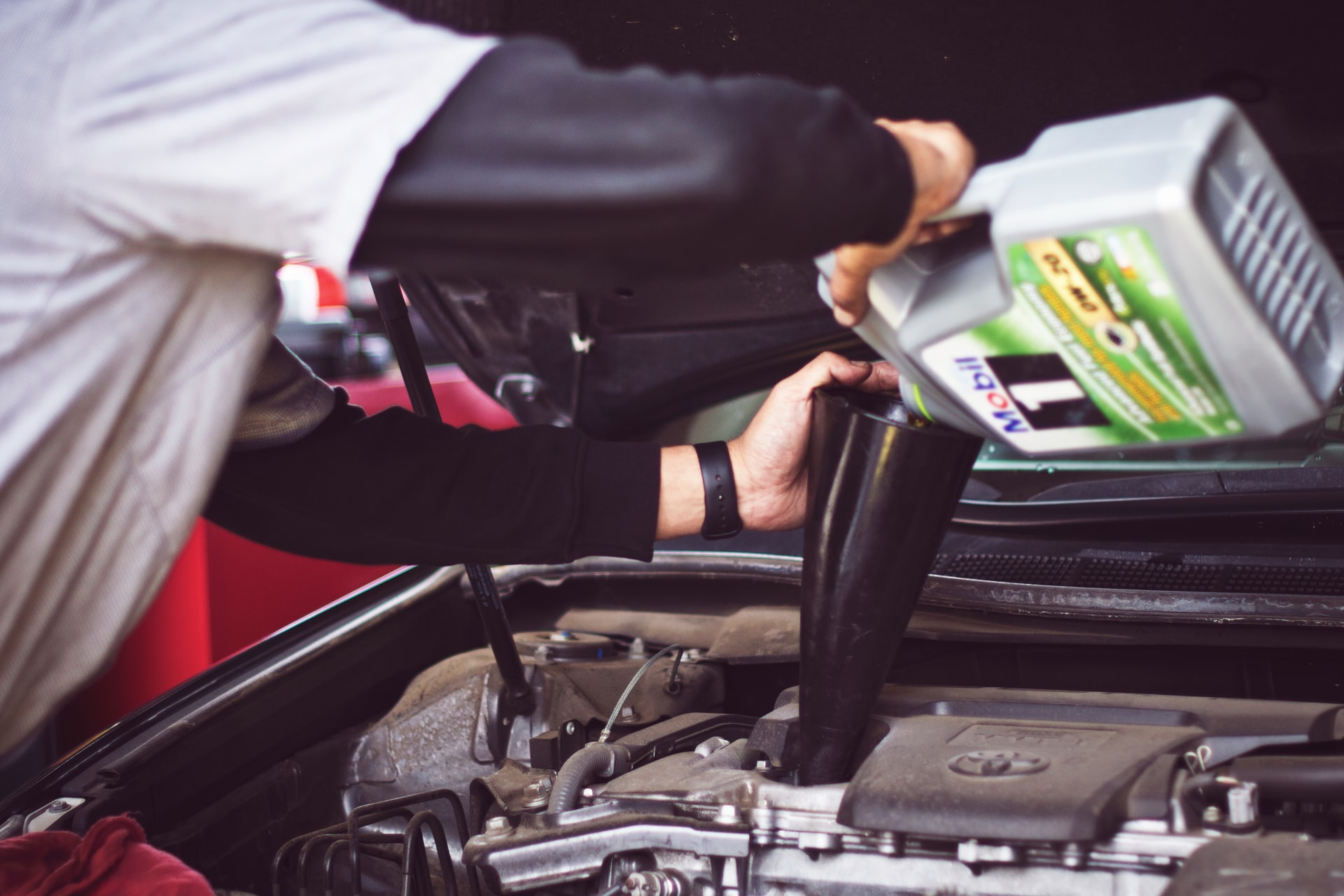
Before you make an offer on a used truck, schedule a pre-purchase inspection with your mechanic; these inspections usually cost somewhere between $100 and $150 and serve as great “lemon insurance.” Make sure you find an honest, trustworthy mechanic with plenty of experience and training, ideally someone with current ASE certifications and a strong customer service reputation. In my experience, well-established independent shops are usually your best bet.
A pre-purchase inspection will accomplish two main goals: identify issues and generate repair estimates. While these inspections usually are limited to visual and electronic scans on the vehicle, a good mechanic can identify the majority of issues that need attention. In turn, he can provide you with repair estimates should you decide to buy.
According to Hollinrake, there are five main deal breakers that a mechanic can identify: powertrain issues, structural issues, water or fire damage, signs of poor maintenance or repair, and hidden issues. Each one has unique signs and symptoms that an experienced mechanic will be able to catch.
- Powertrain: If the engine, transmission, or other powertrain components require high-dollar repairs or an outright replacement, your mechanic will find them.
- Structural issues: By lifting a truck into the air on a hoist, your mechanic will get a much better view of the vehicle’s undercarriage and frame. This makes spotting structural issues much easier than doing so from your back on asphalt, concrete, or gravel.
- Water/fire damage: Sometimes, water and fire damage can be difficult to detect during a visual inspection or test drive. Your mechanic may find evidence that you didn’t or couldn’t.
- Poor maintenance/repair: A good mechanic is an expert at his craft, and he will find signs of poor maintenance or shoddy repairs much more easily than you likely can.
- Hidden Issues: Some sellers simply want to move cars quickly and engage in unethical or illegal practices to hide major (or minor) with shoddy patchwork an untrained buyer might not see. A good mechanic will find these.
- Emissions: Emissions issues also may be a deal breaker in some locations. A good mechanic will know what those standards are, saving you the hassle of a failed emissions test and, thousands of dollars in repair.
Purchasing a quality used truck takes time and patience, but the results will be well worth it. By identifying potential problems ahead of time, you can save yourself plenty of headaches and money. Remember to be patient, and never make an offer on a truck you don’t know enough about. Too many buyers get focused on one used truck they think they must have. Don’t do that. The used market is vast, so you should never get hung up on single vehicle.
